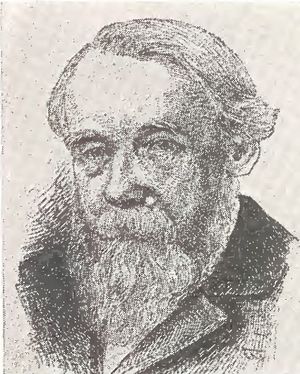Moses G. Farmer
Biography
Professor Farmer was born February 9, 1820, at Boscawen, N. H. He studied at Dartmouth College 1840-43. After having charge of a private school, he gave up this work in 1847 to devote his entire time to scientific pursuits. In this year he invented an electromagnetic engine, and in an exhibition at Dover, N. H., on July 26 of that year, transported passengers on a miniature electric railroad. After lecturing on this invention a number of times, he opened a telegraph office at South Framingham, Mass., and there devised an electrical fire alarm system. This was shown by him in Boston in 1849, and afterward perfected in conjunction with Dr. W. F. Channing. The system was first placed in operation in 1852. Professor Farmer subsequently devised many machines and much equipment of importance in the very early days of the electrical industry. In 1852, he devised a system of 2 or more closed circuit repeaters, and in 1853 patented apparatus for simultaneous transmission of 4 messages on one wire. He then became interested in dial telegraphy, duplex and multiple transmission, and the manufacture of rubber insulation. Becoming interested in electric lighting, in 1859 he invented an automatic regulator for controlling current to electric lamps, and illuminated his own house by electricity that year. Among his many other activities, he is reported to have been the first to construct a self-excited magnetoelectric machine. Professor Farmer was connected with many scientific associations of the day. He died at Chicago, Ill., May 25, 1893, where he had gone to prepare an exhibition of his early inventions for the Columbian Exposition.
Professional Honors
(Associate 1884)
Honorary Member 1890
THE THIRD individual to be awarded honorary membership in the Institute was Prof. Moses Gerrish Farmer, a charter member, who was elected on October 21, 1890.
